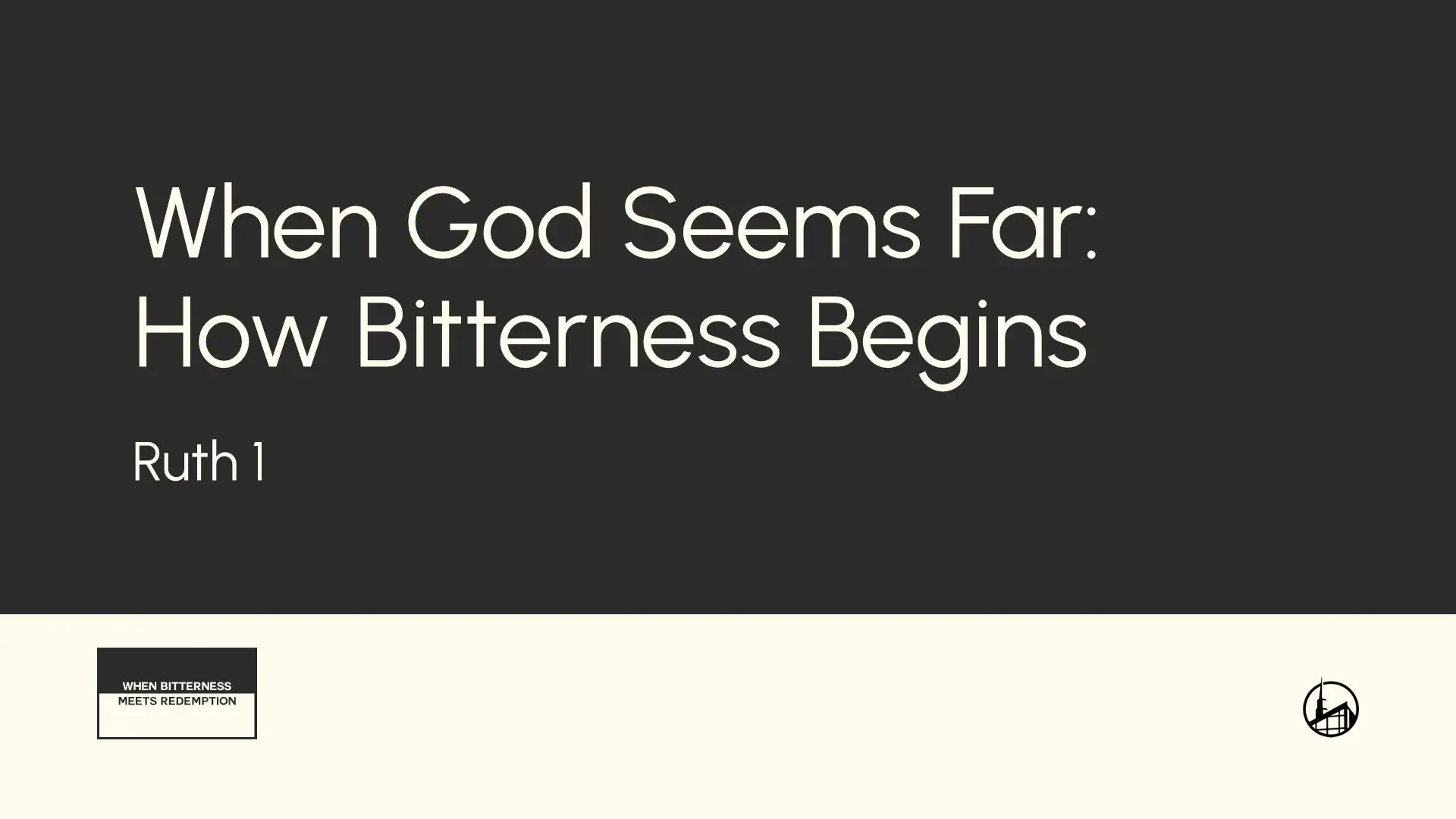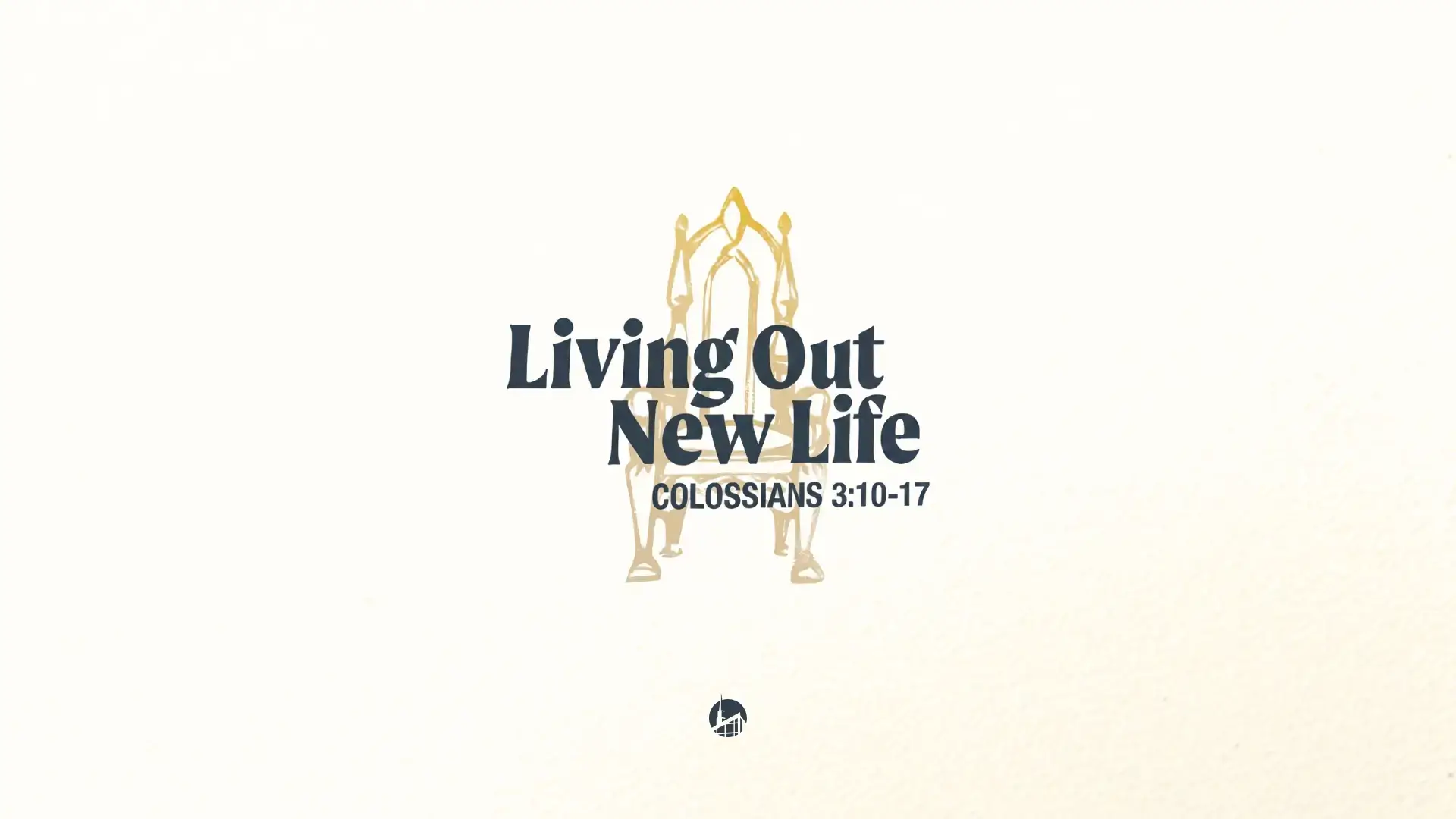The Book of Ruth offers a timeless story of loss, faith, and redemption. In Ruth 1, we meet Naomi, a woman whose life unravels through famine, relocation, and profound grief. Pastor Léveillé’s sermon, “When God Seems Far: How Bitterness Begins,” draws from this chapter to reveal how bitterness takes root and how God’s grace remains at work, even when we cannot see it. This article, formatted from the sermon transcript, explores four key truths from Ruth 1, inviting us to reflect on our own responses to hardship and trust in God’s redemptive plan.
Bitterness Often Begins With Fear-Driven Choices (Verses 1-5)
Naomi’s story begins in Bethlehem, a place ironically named “house of bread,” during a famine. Faced with scarcity, her husband, Elimelech, leads the family to Moab, a land under God’s curse (Deuteronomy 23:3-6). This move was not merely geographical but theological, reflecting a lack of trust in God’s provision. Pastor Léveillé emphasizes that Elimelech’s decision stemmed from fear: fear of lack, fear of suffering, fear that God would not come through. Such fear-driven choices often mark the start of bitterness. The family sought bread in Moab but found loss instead, as Elimelech and his sons, Mahlon and Kilion, died. The sermon draws a parallel to our lives, noting that when we act out of fear rather than faith, we may take detours that lead to spiritual and emotional graveyards. Bitterness, defined as unresolved grief turned into resentment, grows when we choose self-sufficiency over trust in God.
God’s Grace Begins Before We Notice It (Verses 6-14)
Despite Naomi’s losses, God’s grace was already stirring. In Moab, Naomi hears that the Lord has visited His people in Bethlehem, ending the famine. This “rumor of bread” prompts her to return home, accompanied at first by her daughters-in-law, Orpah and Ruth. Pastor Léveillé highlights that God’s grace often works quietly, long before we recognize it. Naomi, in her bitterness, tells her daughters-in-law to return to their homes and gods, believing she has nothing to offer. Yet her decision to return, however reluctant, is a response to God’s grace. The sermon illustrates this with the story of the Titanic, where a fictional tale warned of disaster 14 years before the real event, unheeded by those it could have saved. Similarly, God’s grace operates in our lives, preparing a way back to Him, even when we are unaware. The message is clear: God has not forsaken us, and His faithfulness endures, as promised in Psalm 121:4 and 2 Timothy 2:13.
God Often Sends Grace Through Unexpected People (Verses 15-18)
As Naomi urges her daughters-in-law to leave, Ruth’s response becomes a powerful declaration of loyalty: “Where you go, I will go; your people will be my people, and your God my God” (Ruth 1:16). Ruth, a Moabite widow, is an unlikely vessel of grace, yet her steadfast commitment carries Naomi home. Pastor Léveillé underscores that God often uses unexpected people to reflect His grace, citing the example of Mitsuo Fushida, a Japanese pilot at Pearl Harbor who later became an evangelist after encountering Christ. Ruth’s covenant loyalty, expressed in legal and binding terms, signifies her abandonment of her past identity for a new one rooted in God. This challenges us to remain open to the people God places in our lives, even those who differ from our expectations, as they may be instruments of His purpose.
Bitterness Blinds Us To What God Is Doing (Verses 19-22)
Upon returning to Bethlehem, Naomi is unrecognizable to her community. She declares, “Call me not Naomi, call me Mara, for the Almighty has dealt very bitterly with me” (Ruth 1:20). Her bitterness defines her identity, blinding her to God’s ongoing work. She sees only her losses, not the blessing of Ruth beside her or the barley harvest beginning in Bethlehem. Pastor Léveillé warns that bitterness causes spiritual blindness, leading us to misinterpret our past, despair in the present, and miss God’s future plans. The sermon recounts the story of hymn writer William Cowper, whose despair nearly led to suicide, yet God preserved him through a lost cab driver, inspiring the hymn “God Moves in a Mysterious Way.” Naomi’s return, empty and broken, sets the stage for redemption through Boaz, Obed, and ultimately Jesus Christ. The lesson is that God works even in our emptiness, preparing a harvest we cannot yet see.
Conclusion
Ruth 1 teaches us that bitterness often begins with fear-driven choices, but God’s grace is always at work, often through unexpected people, to lead us back to Him. When bitterness blinds us, we must trust that God is moving, even in our pain. Pastor Léveillé’s sermon calls us to examine our hearts: Are we making decisions based on fear or faith? Are we harboring unresolved grief that has turned to resentment? By emptying ourselves of self-reliance and trusting Jesus, we can break the cycle of bitterness and embrace the Redeemer who makes all things beautiful in His time. Let us heed Naomi’s story and choose faith, knowing that God’s grace is already at work, guiding us toward redemption.












